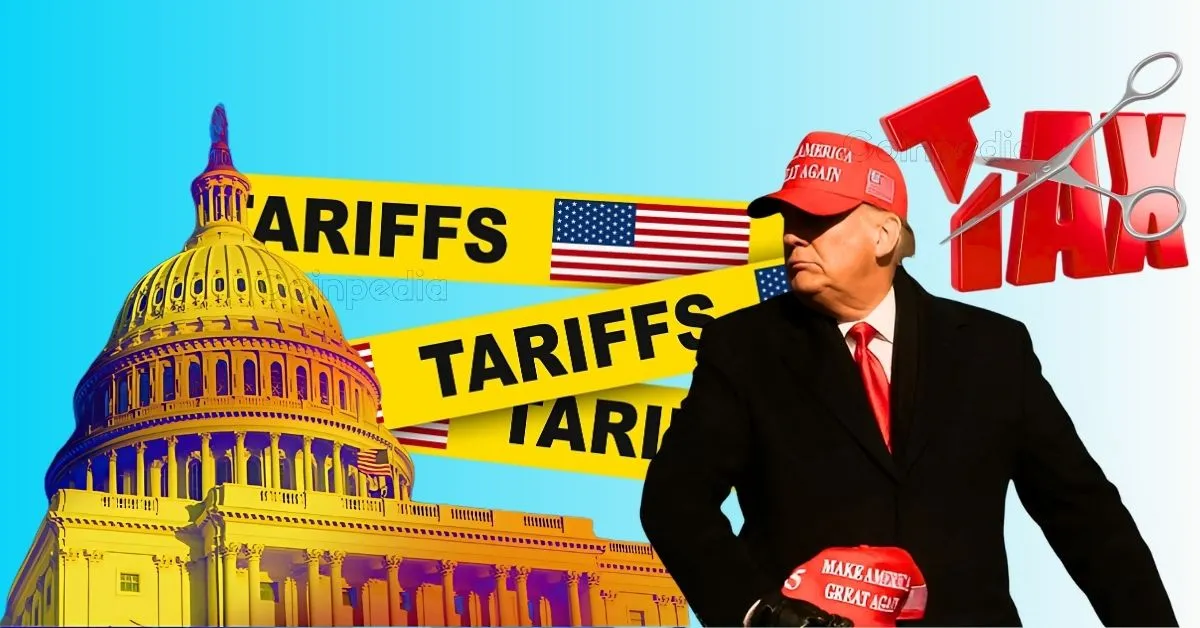
President Donald Trump has hinted that a major shake-up in how America funds its government could be coming soon. In a Truth Social post on April 27, Trump suggested that once his new “Trump Tariff” policies on imported goods are fully rolled out, federal income taxes could be “substantially reduced,” especially for those earning under $200,000 a year.
The idea taps into widespread frustration over taxes.
If Trump’s plan moves forward, it could completely change how Americans pay for government programs—and even put more money back into people’s pockets. But could tariffs alone really replace income taxes?
Here’s a closer look at what’s unfolding and why it could be one of the biggest financial shifts in decades.
Trump introduced a new concept called the “External Revenue Service,” proposing that tariffs on imports could replace federal income taxes. He described this approach as a return to the 19th-century Gilded Age, when the United States operated without income taxes and still built a powerful economy.
While the idea has sparked excitement among many Americans, it has also stirred up a lot of questions among economists and policy experts.
If income taxes are reduced or eliminated, Americans would have more disposable income. Financial analysts predict this could lead to a surge in investments across the stock market, real estate, and cryptocurrencies.
Historically, extra take-home pay tends to boost consumer spending and asset growth. However, experts also warn that the overall economic climate, including possible Federal Reserve interest rate cuts and market volatility, will play a big role in whether Trump’s plan fuels major investment booms.
This isn’t the first time Trump has brought up the idea of replacing income taxes with tariffs. During a 2024 appearance on the Joe Rogan Experience, he discussed the possibility in a more casual setting.
Critics argue that Trump has not yet provided a clear plan for how a tariff-funded government would cover the nation’s current spending levels. Without major budget cuts, they say tariffs alone might not be enough to keep everything running.
Research from Dancing Numbers suggests that getting rid of income taxes could save the average American more than $134,000 over a lifetime. Those savings could be even higher if payroll taxes were also eliminated.
However, many economists caution that tariffs alone might not raise enough money to match today’s federal spending, unless major changes are made to government budgets.
Commerce Secretary Howard Lutnick, a strong supporter of Trump’s tariff plan, has argued for scrapping the IRS completely. He points to the early 1900s, when tariffs played a big role in making America one of the world’s wealthiest nations. Lutnick believes that Trump Tariff measures could again help rebuild domestic industries and boost national wealth.
Financial strategist Bert Dohmen has suggested additional tax proposals for Trump to consider.
One idea is to exempt small business owners over the age of 76 from income taxes, arguing that the paperwork burden is too high for older entrepreneurs.
Dohmen also recommends offering families a 10% tax exemption per child, capped at a 50% total reduction. He says this could help address declining birth rates, which are becoming a major concern in many developed countries.
While Trump’s push for new tariffs has energized some parts of the economy, it has also triggered sharp market reactions. Earlier this month, Trump signed an executive order introducing sweeping new tariffs. Frequent policy changes since then have added volatility to both stocks and bond yields.
Many analysts warn that the evolving Trump Tariff framework is creating more market uncertainty than stability, just as investors are already nervous about potential Federal Reserve interest rate cuts later this year.
As Trump’s tariff-driven strategy continues to unfold, investors, economists, and everyday Americans will be watching closely.
No, Trump has proposed substantially reducing income taxes, especially for those earning under $200,000, by using tariffs to fund the government. He has not announced a full elimination of income taxes.
Trump’s “External Revenue Service” is a concept where government funding would primarily come from tariffs on imported goods rather than traditional income taxes.
If Americans have more disposable income due to lower taxes, it could boost investments in stocks, real estate, and cryptocurrencies. However, the actual impact would depend on broader economic factors.
The cryptocurrency market recorded more than $669 million in net liquidations on Wednesday, July 23,…
In a recent interview, Sal Gilbertie, CEO of Teucrium Trading, opened up about his firm’s…
Jim Cramer revealed he intends to “own” Bitcoin and Ethereum to protect his children’s financial…
The US Securities and Exchange Commission (SEC) recently made headlines by granting approval for Bitwise’s…
Square has launched Square Handy, a compact and durable mobile POS terminal designed for Japan’s…
New U.S. stablecoin legislation is driving a significant increase in stablecoin issuance from banks, asset…